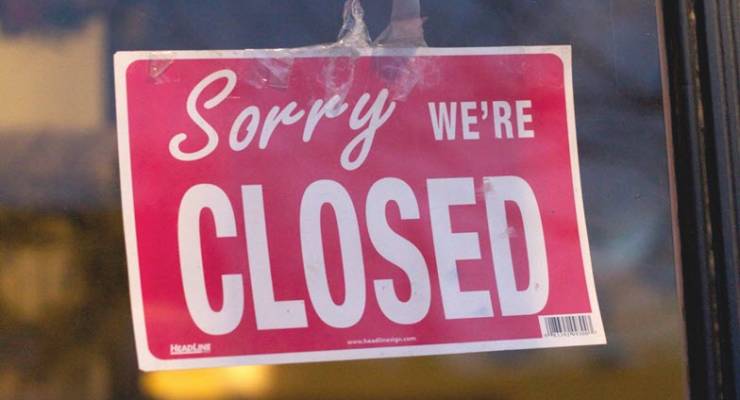
Saul Eslake is a heretic. He has found a position that is anathema to literally every side of politics: he’s a small business sceptic. Prior to the budget, Eslake detailed his concerns about the government’s proposed company tax cut package. But unlike many economists and all politicians, he went further and suggested there was no case for extending a tax cut to small business any more than medium or large business.
Small business is the sacred cow of Australian politics. Everyone in public life worships it. Small business is the “engine room” and “backbone” of the Australian economy, according to the government. Small business is the engine room and backbone of the economy, according to Labor. Small business is the engine of the economy, say the Greens.
Eslake’s contention is that small business’ job creation performance is overhyped, especially given it is now taxed at a lower rate. And new data confirms his scepticism about the backbone/engine.
On Friday the Australian Bureau of Statistics released its annual Australian Industry data for 2016-17, which examines the characteristics of Australian business, including size. Small business is the largest employing sector in Australia, with businesses under 20 employees having around 4.8 million jobs; medium businesses (20-199) 2.6 million and businesses over 200 staff about 3.5 million. But it has been the poorest performer in terms of jobs growth in the last two years.
“Small businesses have been taxed at a lower rate than larger ones since the beginning of the 2015-16 financial year,” Eslake explains. “Over the two years to 2016-17, employment in businesses has increased by 2.3%. Small businesses account for only 0.9 percentage points of this increase in employment, or 17.9% of the total, well below their 44.4% share of total business employment in 2014-15.”
The company tax cuts that are already legislated (which are based on turnover size) seem, if anything, to be associated with a decline in the jobs performance of small business relatively to sectors subject to higher taxation. “The share of business employment accounted for by small businesses has fallen from 52.6% to 43.8% over the past decade,” Eslake points out. The strongest growing sector in the last two years was medium businesses, which grew employment by nearly 5%.
Tax breaks should be aimed at new, not existing businesses, he argues. “New businesses actually do typically create jobs (and for that matter are more likely to engage in various forms of innovation).” Assistance for new businesses is much cheaper given there are fewer new businesses than small businesses. And assistance aimed at small business can be gamed.
“Small businesses can and often do choose to remain below whatever threshold determines their eligibility for tax breaks,” he notes, whereas “new businesses can’t help growing older”.








Much of the growth in sole trader ABNs was driven by the economic logic of larger businesses finding it more profitable to sub-contract rather than directly employ. There were also political calculations – about their possible voting behaviour – when this was facilitated and encouraged in the mid-1990s. The rise in self-employment has been linked to new forms of employment which lays the burden of associated costs (pensions, holidays, training and so on) on the individual contracted worker, now placed in both a flexible and precarious situation. The role of social welfare payments (child benefit, housing allowance, educational subsidies and so on) in providing a supplement to the income of these workers represent a tax payer subsidy for low paying companies who rely on such sub-contracted individuals. The same might be said of the low tax for small businesses; they actually allow them to operate and survive, thus off-setting or ‘socialising’ the costs that they now pay instead of the larger employers as formerly.
Apart from these detailed questions of social equity, there might be other reasons why one would value a small business economy and we should think carefully about any policy shift to fast growth, high productivity corporations. The questions are, first, what kind of small business economy and second, what wider benefits might a small business economy deliver? These involve social questions that are simply not captured by economic thinking.
So he won’t be joining in the rush to sacrifice facts upon the altar to Small Business?
and small businesses are the most likely to accept GST-lite cash transactions, underpay their employees, ignore O H & S legislation, and of course trouser any tax breaks; but why let the facts get in the way of the LNP desire to get them on-side?
It was always going to be the case! Blind Freddy could see that! The extra bit of cash flow from tax cuts for most small businesses isn’t enough to fund another full time role; many small businesses, that can, are keen to further cut staff costs by automation or offshoring admin type roles; and allow the owners to take a greater direct remuneration share to catch up on self wealth, due to much lower superannuation contribution levels
Saul Eslake is the smartest man in the land.
Most small businesses already employ the number of people that they need, tax cuts won’t make any difference, same argument used for not paying penalty rates. BTW, have we got any stats on the wonderful improvement in employment figures promised after Abbott’s FWT decision to cut penalty rate?